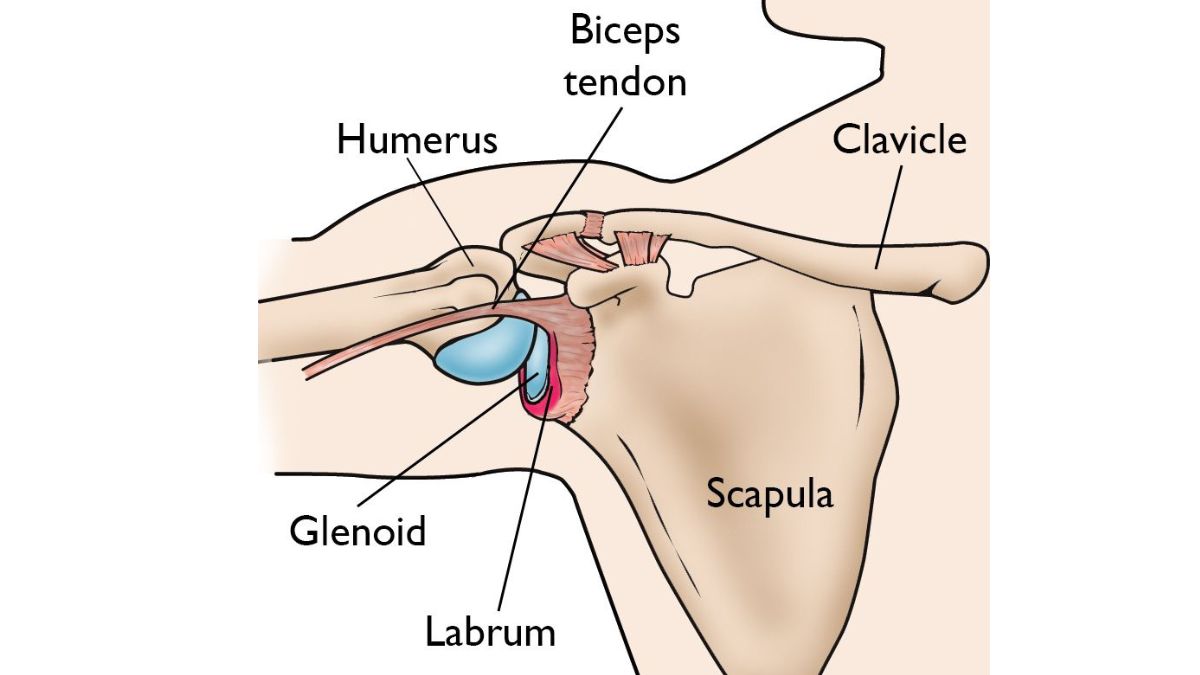HEALTH
Orthopaedic Specialties Uncovered: Hand & Wrist, Shoulder & Elbow, and More

When it comes to maintaining mobility and overall quality of life, orthopaedic care plays a vital role. From managing sports injuries to addressing chronic joint pain, orthopaedic surgeons specialize in diagnosing and treating issues related to the musculoskeletal system. This article delves into some key orthopaedic specialities, including Hand & Wrist, Shoulder & Elbow, and more, shedding light on the conditions treated and innovations in care.
Hand & Wrist Specialties
Common Conditions Treated
The hand and wrist are intricate structures vital for everyday activities, making them susceptible to injuries and disorders. Orthopaedic specialists in this field commonly treat:
- Carpal Tunnel Syndrome: A condition caused by pressure on the median nerve, leading to pain, numbness, and tingling in the hand.
- Wrist Fractures and Sprains: Often resulting from falls or sports injuries, these require prompt diagnosis and treatment to prevent long-term issues.
- Arthritis: Degeneration of the joints in the hand and wrist, leading to pain and reduced mobility.
Diagnostic and Treatment Techniques
Orthopaedic surgeons use advanced diagnostic tools like X-rays and MRIs to pinpoint the root cause of hand and wrist issues. Treatment options vary from conservative approaches, such as splints and physical therapy, to surgical interventions like tendon repair or joint fusion. For conditions like carpal tunnel syndrome, minimally invasive procedures are often the preferred method, ensuring quicker recovery times and better outcomes.
Case Study/Example
Imagine a patient struggling with debilitating wrist pain from repetitive strain at work. After consulting with the top doctors at Modern Ortho, they undergo a thorough diagnosis and a tailored treatment plan. With a combination of physical therapy and minimally invasive surgery, the patient regains full function and resumes their daily activities pain-free.
Shoulder & Elbow Specialties
Understanding the Complexity of Shoulder and Elbow Joints
The shoulder and elbow joints are among the most complex in the body, offering a wide range of motion but also making them prone to injuries. Their intricate anatomy includes multiple muscles, tendons, and ligaments working together, which is why specialized care is essential for effective treatment.
Conditions Treated
Orthopaedic surgeons specializing in shoulder and elbow care treat various conditions, such as:
- Rotator Cuff Injuries: Tears or strains in the shoulder tendons causing pain and limited mobility.
- Tennis Elbow and Golfer’s Elbow: Overuse injuries that result in inflammation and pain in the elbow.
- Dislocations and Fractures: Traumatic injuries that require prompt medical attention to restore normal function.
Innovations in Treatment
From arthroscopic surgery to joint replacement procedures, advancements in shoulder and elbow care continue to improve outcomes for patients. Arthroscopic techniques, for example, allow surgeons to repair torn tendons or remove damaged tissue with minimal incisions, leading to faster recovery and less post-operative pain.
Expert Insights
Orthopaedic surgeons recommend regular strength training and proper warm-ups before physical activity to prevent shoulder and elbow injuries. Maintaining good posture and ergonomics in daily activities can also reduce strain on these joints.
Other Orthopaedic Specialties to Know
Spine Specialists
Orthopaedic spine surgeons focus on conditions such as herniated discs, scoliosis, and spinal stenosis. With advanced techniques like spinal fusion, they help patients alleviate chronic pain and restore mobility. If you’re exploring options for spinal fusion, Visit New Jersey Spine Institute to learn more about spinal fusion NJ, where expert care meets cutting-edge technology.
Sports Medicine Experts
Athletes often face injuries like ACL tears, sprains, and stress fractures. Sports medicine specialists not only treat these injuries but also provide preventive care and rehabilitation plans to ensure optimal performance. From advanced imaging to personalized therapy, their expertise is essential for athletes of all levels.
Hip and Knee Specialists
For patients with arthritis or severe joint pain, orthopaedic surgeons specializing in hip and knee care offer treatments ranging from injections to total joint replacements. Minimally invasive procedures have revolutionized care, reducing recovery time and improving patient outcomes.
Orthopaedic Trauma Specialists
Trauma surgeons handle emergencies such as fractures and dislocations caused by accidents or injuries. Their expertise ensures timely intervention, preventing complications and promoting faster healing.
Choosing the Right Orthopaedic Specialist
Factors to Consider
Selecting the right orthopaedic specialist is crucial for effective treatment. Consider factors such as:
- Experience and Specialization: Look for surgeons with extensive experience in treating your specific condition.
- Hospital Affiliations: Surgeons associated with reputed hospitals often have access to better facilities and technologies.
- Patient Reviews: Feedback from previous patients can provide valuable insights into a surgeon’s expertise and bedside manner.
When to See an Orthopaedic Surgeon
Consult an orthopaedic specialist if you experience persistent pain, swelling, or limited mobility in any part of your body. Traumatic injuries like fractures or dislocations also require immediate medical attention.
Preparing for Your Appointment
Before your consultation, gather all relevant medical records, imaging results, and a list of symptoms. Prepare questions to ask your orthopaedic surgeon, such as the expected recovery time, treatment options, and potential risks.
Conclusion
Orthopaedic care is essential for maintaining mobility and improving quality of life. From Hand & Wrist specialists to Shoulder & Elbow experts, orthopaedic surgeons address a wide range of conditions with precision and care. Early intervention and expert treatment can make all the difference in recovery and overall well-being. Whether you’re dealing with chronic pain or a sports injury, consult a specialist to explore the best treatment options for your needs.
HEALTH
What Is a SLAP Tear? Understanding This Common Shoulder Injury

If you’ve been experiencing shoulder pain, clicking, or a loss of strength—especially during overhead movements—you may be dealing with more than just a strain. One possible culprit is a SLAP tear, a specific type of injury to the shoulder joint that can affect everyone from athletes to weekend warriors.
What Does “SLAP Tear” Mean?
SLAP stands for Superior Labrum Anterior and Posterior. In simpler terms, it’s a tear in the top part of the labrum—the ring of cartilage that surrounds the socket of your shoulder joint. This cartilage helps stabilize your shoulder and keep the ball of your upper arm bone in place. When torn, the result can be instability, discomfort, and reduced mobility.
How Does a SLAP Tear Happen?
SLAP tears can result from either acute trauma or repetitive motion. Some of the most common causes include:
- Falling on an outstretched arm
- Lifting heavy objects or weights with poor form
- Repetitive overhead movements (common in baseball, swimming, tennis, etc.)
- Sudden pulling motions (like grabbing something while falling)
In some cases, SLAP tears can also be part of the natural wear-and-tear process, especially in people over 40.
Common Symptoms of a SLAP Tear
Not all SLAP tears feel the same, but here are some symptoms to watch for:
- Deep shoulder pain, especially during overhead activity
- A clicking or popping sensation
- Weakness or fatigue in the shoulder
- Limited range of motion
- A feeling that your shoulder is going to “slip out”
These symptoms often mimic other shoulder conditions, which is why getting an accurate diagnosis is so important.
Diagnosing a SLAP Tear
A shoulder specialist will typically begin with a physical exam and a review of your activity history. Imaging tests like an MRI can help confirm the diagnosis, though in some cases, an arthroscopic procedure may be necessary to fully visualize the tear.
For a deeper dive into how SLAP tears are diagnosed and treated, visit: https://levelupshoulder.com/slap-tears/
Treatment Options
Treatment depends on the severity of the tear and your activity level. In mild cases, rest, anti-inflammatory medications, and physical therapy may be enough to restore function. For more serious tears—especially in younger or highly active individuals—arthroscopic surgery may be recommended to repair the torn labrum.
Post-surgery, a rehabilitation program will help restore range of motion, rebuild strength, and reduce the risk of reinjury.
Don’t Ignore Shoulder Pain
A SLAP tear can seriously impact your ability to perform daily tasks and enjoy physical activity. If you’re experiencing persistent shoulder pain, especially with overhead movements, it’s worth getting it checked out. Early treatment leads to better outcomes and a quicker return to the things you love.
HEALTH
What Is Orthopedic Medicine? An Intro to Bone and Joint Health

From sore knees after a weekend hike to a torn rotator cuff that just won’t heal, many of us deal with bone, joint, or muscle pain at some point in our lives. That’s where orthopedic medicine comes in. But what exactly does it cover—and when should you see an orthopedic specialist?
Whether you’re an athlete, a weekend warrior, or simply want to stay mobile and pain-free as you age, understanding the basics of orthopedic care can help you make better decisions about your health.
What Is Orthopedic Medicine?
Orthopedic medicine is a branch of medicine focused on the musculoskeletal system, which includes your bones, joints, ligaments, tendons, muscles, and nerves. The goal is to diagnose, treat, and prevent injuries and disorders that affect movement, stability, and function.
Orthopedic specialists, also known as orthopedists or orthopedic surgeons, are trained to handle everything from acute injuries (like fractures and dislocations) to chronic conditions such as arthritis, tendonitis, and degenerative joint disease.
What Conditions Do Orthopedic Doctors Treat?
Orthopedic medicine covers a wide range of conditions affecting different areas of the body, including:
- Shoulder injuries: rotator cuff tears, labral tears, impingement
- Knee issues: ACL tears, meniscus injuries, runner’s knee, arthritis
- Spine problems: herniated discs, sciatica, scoliosis
- Hip pain: bursitis, labral tears, osteoarthritis
- Hand and wrist: carpal tunnel syndrome, fractures, tendonitis
- Foot and ankle: plantar fasciitis, sprains, Achilles tendon injuries
Many of these conditions can be treated with non-surgical methods, though surgery may be necessary in more severe cases.
Types of Orthopedic Care
Orthopedic care includes both surgical and non-surgical options, depending on the injury or condition. Treatment approaches may involve:
- Physical therapy and rehabilitation
- Injections (such as cortisone or PRP) to reduce inflammation and pain
- Bracing or casting for stability and healing
- Minimally invasive surgery, like arthroscopy
- Joint replacement surgery, typically for hips, knees, or shoulders
For example, orthopedic treatments by Level Up Shoulder, Dr. Drake focus not only on surgical repair of shoulder injuries, but also on functional rehab, strength restoration, and getting patients back to the activities they love—faster and stronger.
When Should You See an Orthopedic Doctor?
If you’re experiencing any of the following, it may be time to schedule a consultation:
- Persistent joint or muscle pain
- Swelling or stiffness that doesn’t improve with rest
- Limited range of motion in a joint
- Weakness or instability
- An injury that isn’t healing properly
- Pain that interferes with your daily life or sleep
Early intervention can prevent long-term damage and get you back to full strength sooner.
Conclusion
Orthopedic medicine plays a vital role in keeping your body moving the way it should. Whether you’ve suffered a sports injury or are dealing with years of wear and tear, orthopedic specialists are trained to help you regain mobility, reduce pain, and improve your quality of life.
From preventive care to advanced surgical procedures, orthopedic treatments are designed to keep your bones and joints working better, for longer.
HEALTH
Raising Healthy Smiles: The Essentials of Pediatric Dental Care

What Is Pediatric Dentistry?
In addition to providing dental care, pediatric dentistry promotes good oral hygiene from an early age. Unlike general dentistry, pediatric dentists focus on young patients’ unique challenges and considerations. Their specific training prepares them to prevent and treat oral health problems in newborns, kids, and teenagers. Facilities like a Pediatric Dentist in Thornton provide environments specifically designed for children, helping ease anxiety and making dental visits enjoyable experiences. A pediatric facility’s vibrant and entertaining surroundings can significantly influence a child’s desire to get dental care.
The Importance of Early Dental Visits
Starting dental visits early is an investment in lifelong oral health. These initial visits, as recommended by the American Academy of Pediatric Dentistry, set the stage for understanding the importance of dental care. These are crucial periods when dentists can introduce children to oral hygiene and the significance of caring for their teeth. By capturing a child’s interest and removing any fear associated with dental visits, these experiences contribute to effectively monitoring and guiding the development of both baby and permanent teeth.
Understanding Common Pediatric Dental Issues
Children’s dental problems, including cavities and gum disease, are sometimes written off as trivial, but if ignored, they can cause serious health problems. Children are prone to cavities due to the sugary foods they consume and their sometimes irregular brushing habits. In addition, behaviors like thumb-sucking and extended use of pacifiers can affect tooth alignment and jaw development. By attending regular dental visits, parents can gain insights from dental professionals on mitigating these risks and ensuring early intervention. A more secure oral future can result from early detection of these disorders, which can stop them from developing into more serious tooth health difficulties.
Tips for Promoting Healthy Dental Habits
Creating a routine around dental care can help instill lifelong habits in children. They must be taught to use fluoride toothpaste and clean their teeth twice daily. Flossing should also be incorporated once teeth begin to touch. These habits need reinforcement at home to foster a sense of accountability in children. Parents can use visual aids or reward systems as positive reinforcements. Demonstrating proper techniques adds value, as children are likely to imitate the actions they observe. Good oral hygiene should be framed positively as an empowering practice rather than a chore.
Nutrition’s Role in Oral Health
A balanced diet is a pillar of strong oral health. Foods containing essential minerals, particularly calcium and phosphorus, are crucial in maintaining healthy enamel and oral well-being. Nuts, leafy greens, and dairy products can all significantly improve tooth health when consumed regularly. It’s also critical to restrict the consumption of acidic drinks and sugary foods that cause cavities. The resource on WebMD highlights the importance of a balanced diet in protecting your child’s teeth. Making informed choices about diet is an impactful way for parents to exercise control over their child’s oral health outside of the dental office.
How to Choose the Right Pediatric Dentist
Choosing a pediatric dentist shouldn’t be rushed. It’s a decision that can influence a child’s view of dental care. A pediatric dentist’s ability to communicate effectively with children and a friendly, inviting office atmosphere can make visits less intimidating. You could feel more at ease reading online reviews or asking friends for recommendations. The right dentist will engage with children in a way that builds trust and encourages enthusiasm for dental care. Parents are encouraged to visit potential dental practices to assess the environment and ensure it aligns with their child’s comfort levels and needs.
Setting Up a Child-Friendly Dental Routine
Making dental hygiene a habitual, positive practice begins with creativity. Utilizing tools such as songs, colorful toothbrushes, or even digital apps tracking brushing time can turn routine into fun. Allowing your child to pick out their dental supplies can also foster a sense of ownership over their oral hygiene. Establishing a routine, like brushing after breakfast and before bed, helps to weave dental care seamlessly into daily life. Consistency is key, and positive reinforcement can encourage a child to see these activities as enjoyable and rewarding.
Navigating Dental Anxiety in Children
Dental anxiety can significantly impact a child’s willingness to receive care, but it can be managed successfully. Introducing your child to the dental office gradually and supportively can alleviate fear. Explaining dental procedures using child-friendly language and offering reassurance can demystify the experience. Techniques such as deep breathing exercises or storytelling can divert attention, making visiting less daunting. Creating a supportive environment at home and during dental visits cultivates a positive attitude toward long-term dental wellness.
-

 BLOG1 year ago
BLOG1 year agoATFBooru: A Hub for Animated Art and Community
-

 CONSTRUCTION1 year ago
CONSTRUCTION1 year agoBuilding a Home Gym in Your Basement (7 Key Renovation Tips)
-

 BLOG1 year ago
BLOG1 year agoFictionmania: A Deep Dive into the World of Transformative Stories
-

 LIFESTYLE1 year ago
LIFESTYLE1 year agoVersatile Living: Stylish Indoor Outdoor Rugs with Eco-Friendly Appeal
-

 GAMES1 year ago
GAMES1 year agoSnow Rider 3D: Unblocked Tips and Tricks for Gamers
-

 LIFESTYLE1 year ago
LIFESTYLE1 year agoAchieve Elegance with Chic Blue Formal Dresses and Redken Professional Hair Care for All Hair Types
-

 BLOG1 year ago
BLOG1 year agoGIFHQ: A Comprehensive Guide
-

 BLOG1 year ago
BLOG1 year agoVincent herbert new wife: A Detailed Overview
